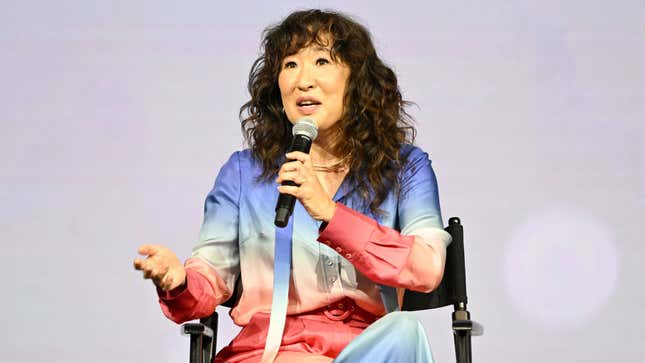Sandra Oh Isn’t Waiting for White Male Directors to Cast Her
“It’s like being able to get over a bad boyfriend. They’re not going to call,” Oh told the New Yorker.
Entertainment

By now, Sandra Oh is a household name: We know (and love!) her as Cristina Yang in Grey’s Anatomy, scene-stealing Patti in Under the Tuscan Sun, and as the titular role in Killing Eve. Oh has established herself, but some of her most exciting roles these days aren’t coming from big names in Hollywood—instead, they’re coming from younger millennial creators, and Oh is glad for it.
“It’s like being able to get over a bad boyfriend. They’re not going to call,” Oh said in a New Yorker interview published earlier this week of the white male directors who haven’t and probably won’t reach out to her to star in their projects. “Just move on and hang out with the young women who want you to be their mom. If you’re going to put all your stock and wait for the white dude to give you the opportunity, or to give you the validation, or to say, ‘Now you can be who you are, because I say so’—that’s destructive.’”
In particular, she loved working with Iris Shim, the writer-director behind the 2022 Korean American horror film Umma: “That’s who I want to work with. That film and the script, it was really an examination of generational trauma, interpreted through a type of genre lens,” Oh said.
-

-

-

-

-

-

-

-

-

-

-

-

-

-

-

-

-

-

-

-

-

-

-

-

-

-

-

-

-

-

-

-

-

-

-

-

-

-

-

-








































